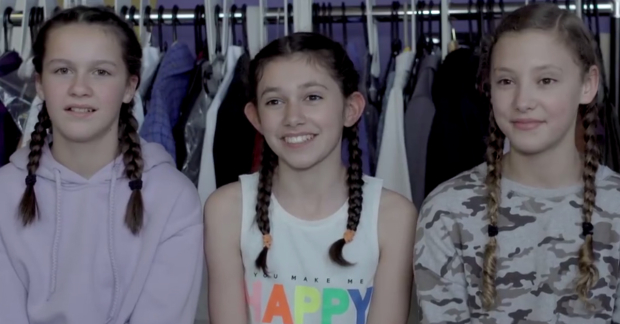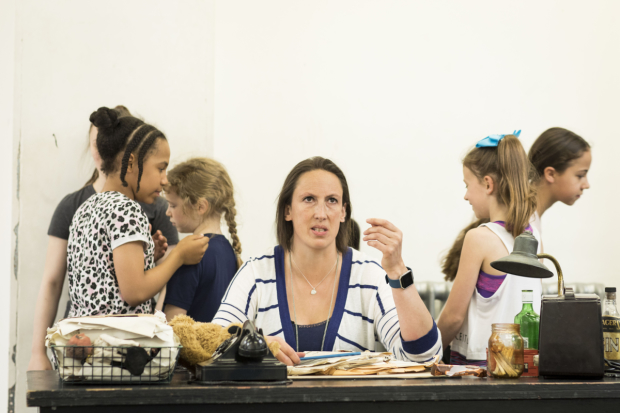Review: Annie (Piccadilly Theatre)
It’s not a bad moment for this revival of Annie to open. Amidst gloom, uncertainty and random acts of violence, what the world needs is a feel-good musical featuring a plucky orphan, a shaggy dog – and a glistening message of cast-iron hope and optimism.
This version, the first in London since 1998, also features Miranda Hart making her West End debut, but it is doing no discredit to the popular TV comedian to say that she is just one ingredient of many that make the production such a success.
First of those, is the show itself. In memory, there’s a tendency to think this story of a red-haired orphan who searches for her parents with the help of a friendly billionaire is saccharine and tiresome. In reality, the book by Thomas Meehan, music by Charles Strouse, and lyrics by Martin Charnin – based on a comic strip by Harold Gray – have a heart of gold but a structure of fine-honed steel.
In placing the success of Roosevelt’s New Deal – and indeed the President himself – at the centre of action, alongside the tough-minded billionaire Daddy Warbucks, who has dragged himself up by his bootstraps but still recognises – with the help of little orphan Annie – that generosity has a place in life, the musical manages to have its liberal cake and eat it. Its message is both humane and inspiring and, in song after catchy song, hammered home.
Consequently, hearing Annie’s resilient assertion that "the sun will come out tomorrow" a few days after a terrorist attack on London, felt apt rather than Pollyanna-ish. Annie is a show that asserts the value of courage and endurance, just as much as it celebrates unconditional love.
This production, fluently directed by Nikolai Foster, who previously directed a touring version, also has the benefit of a kind of rough theatrical magic. Its scale fits perfectly into the relatively compact Piccadilly and Colin Richmond’s designs manage to be both glittering – the bright lights of New York dazzle – and simple at the same time. I particularly liked Hooverville, where the homeless hoof alongside ramshackle cars and a glowing brazier in an evocative scene swiftly assembled by the cast.
Here, as elsewhere, Nick Winston’s choreography is inventive and tightly danced, and the singing, under George Dyer’s direction, is both audible and meant. Ben Cracknell’s lighting adds massively to the overall effect, creating quick changes of mood and atmosphere.
Within this carefully shaped setting, the cast have chance to shine. The real stars are the children and the team I saw – led by Ruby Stokes as Annie – were as confident and cute as you might expect, with excellent comic timing. In a TV interview, the Annies joked that their American accent was rather better than Hart’s as the drunken orphanage boss Miss Hannigan and this indeed proves to be true.
But Hart is an attractive presence on stage, with a voice that lends considerable punch to Hannigan’s big party piece about her hatred of little girls. She’s at her best when being most herself – sinking to the floor slowly to take a slug of gin, or kissing Daddy Warbucks’ head in awed admiration. The problem is, she’s a warm actress and her character is not a pleasant one; she’s cruel, unkind and given no chance of redemption, which is a bridge the debutante cannot cross. As Warbucks, Alex Bourne brings real emotion and a lovely tenor voice to the part; I loved his performance and Holly Dale Spencer, Jonny Fines, Djalenga Scott and Keisha Atwell all lend strong support. The dog Sandy is played by Amber and is, of course, heart-warming.
Annie will run at the Piccadilly Theatre until 6 January 2018.
Click here to buy tickets for Annie












